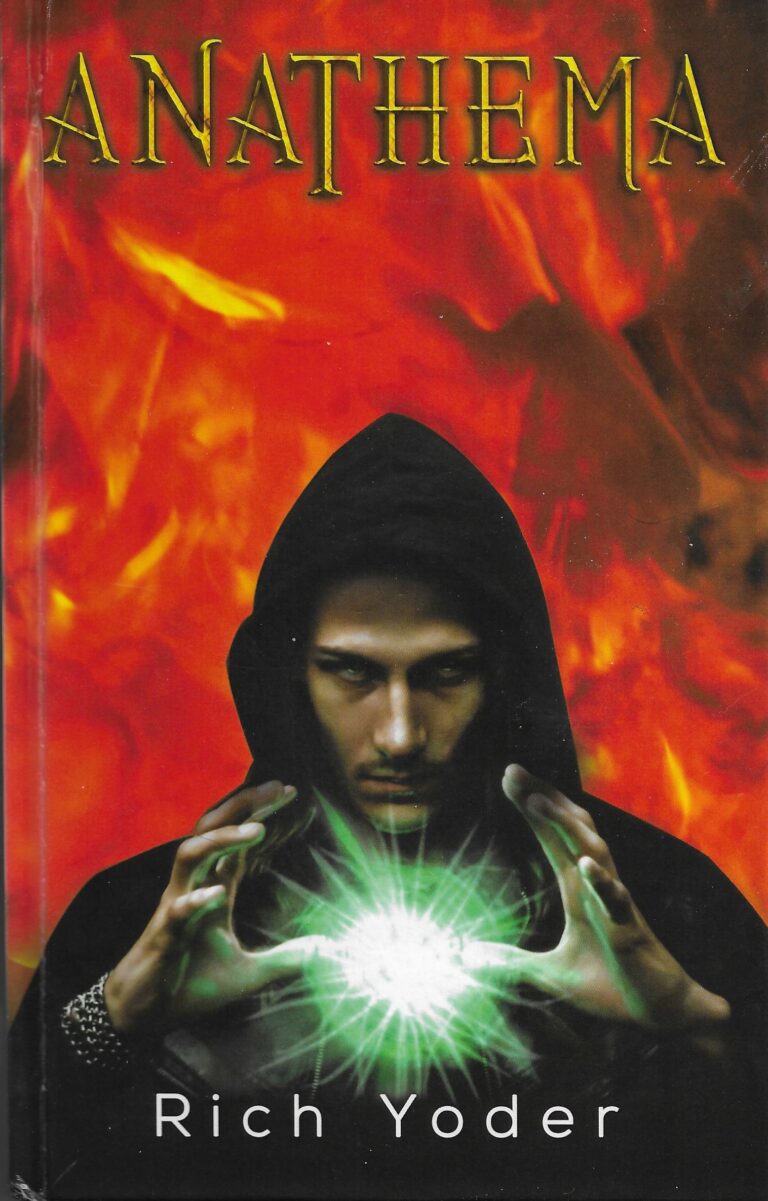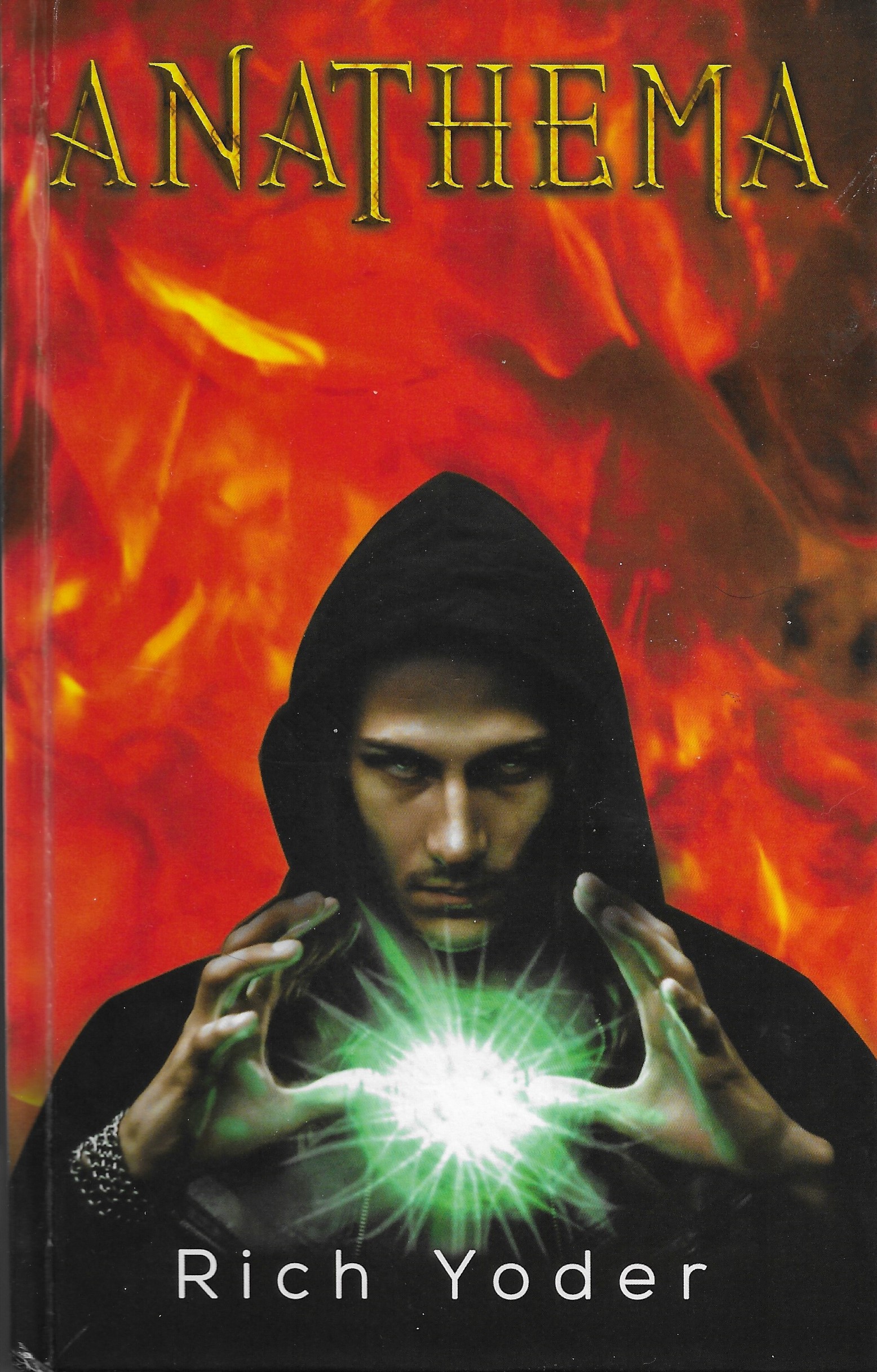In Rich Yoder’s ANATHEMA, the wizard Melsafar, having won a contest for the Devil’s favor with his rival Lethairn, becomes the owner of the powerful Hellstone – and the enemy of the noble lord Sir Jonathan Egan. Melsafar attempts to train his own son Gwain in his image, and to use him to curse Egan and his lineage forever, just as it seems that Egan has finally won. But Gwain, while the child of an evil wizard’s rape, is also a man with moral principles of his own, and it is his contest with his father and his father’s trickery that forms the core of the book.
The curse is generational, and the story leaps from time to time, showing the consequences for family members in the 18h century and in the present – this raises some intriguing ideas concerning the nature of cause and effect and the ability of choices made in the past to change the future. The ending leaves room for some interesting speculations and possibilities. The final battle between the two evil wizards Melsafar and Lethairn, with other participants, has its folkloric power as each casts enchantments that counter the others, and it’s perhaps the most exciting moment in the book. The time jumps do get a bit confusing in places, and could be signaled better by, perhaps, chapter headings or some other indication of time and place.
Characters fall a bit flat – they are either Good or Evil, with little grey area and almost no character development. Melsafar is wholly evil and has never been anything but, where Egan is a stout noble lord with only one flaw – he is too kind and forgiving. Even Gwain, who might be expected to be tempted to follow in his father’s footsteps, or to have to overcome some conflict within himself, is never seriously lured away from the good side, and his worst sin is accidentally helping his father through a trick (that anyone with any understanding of how evil magic works should have seen through in an instant, mind you). Dialogue is overdramatic and relies too much on grandiose verbosity than on genuine human emotion. Phrases like “I will return to have my malefactions with him!” or “This peccant anathema will devour your souls and bring your name into abomination,” attempt to give an antique dramatic flair but mainly succeed in sounding overblown and even a bit pompous. All in all, this is a story with a lot of potential, but it needs a bit more attention to character development, a few more grey areas and a bit more complexity and emotional power in its conflicts.
A fierce good vs. evil fight spanning lifetimes and generations, ANATHEMA is ambitious and energetic, but falls a bit flat in terms of character development and emotional force.
~Catherine Langrehr for IndieReader


